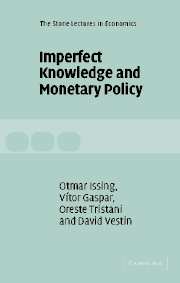Introduction
Published online by Cambridge University Press: 22 September 2009
Summary
Uncertainty is a pervasive fact of life. Many decisions have to be taken with limited information, imperfect knowledge, in an ever-changing environment.
The decision to purchase any consumption good is always taken based on limited information about, for example, the distribution of prices across retailers. One can cross-check prices from a couple of small shops and large retailers, but very quickly the costs of gathering and processing new information become prohibitively high. Quoting F. H. Knight, “it is evident that the rational thing to do is to be irrational, where deliberation and estimation cost more than they are worth.”
Imperfect knowledge also characterizes most important decisions in life. The choice of a university degree course is often made while ignoring one's own chances of actually attaining the degree, the impact of the degree on future job opportunities or the relative merits of the degree when compared with alternatives.
A by-product of imperfect knowledge is that evaluations of future outcomes may be formed in ways that are not necessarily correct. Different people may have different perceptions on the best degree and university. In turn, people's perceptions may affect outcomes, so that “the truth” will not be independent of the learning process by which perceptions are formed. To continue the university analogy, perceptions about the least useful degrees may change over time.
Information
- Type
- Chapter
- Information
- Imperfect Knowledge and Monetary Policy , pp. 1 - 11Publisher: Cambridge University PressPrint publication year: 2006
